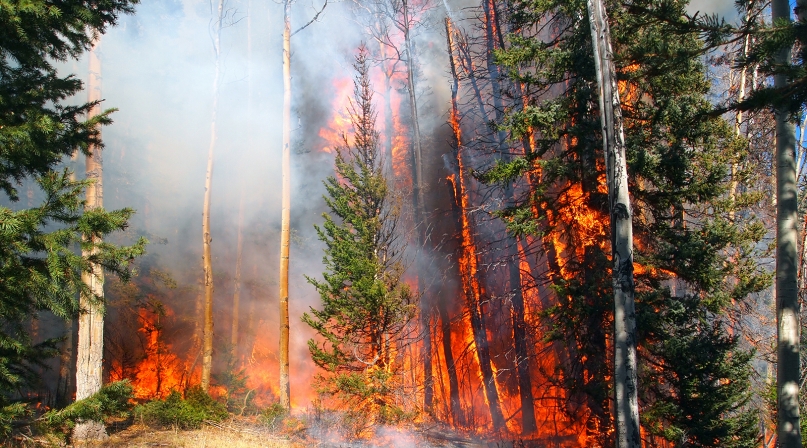Congress confronts wildfire budgeting battle as year ends
Upcoming Events
Related News

Wildfire suppression costs shot up dramatically in 2015
Wildfire supression costs over the past 10 years
Wildfire supression costs over the past 10 years
 As Congress looks ahead to a post-election, lame-duck session, one major priority remaining for lawmakers is fixing the federal government’s budgeting process for fighting wildfire.
As Congress looks ahead to a post-election, lame-duck session, one major priority remaining for lawmakers is fixing the federal government’s budgeting process for fighting wildfire.
Both the Senate and House are considering bipartisan bills crafted to fix the wildfire-borrowing problem. This year, fire suppression costs for the Forest Service climbed above $1.7 billion as the agency battled wildfires that burned more than 9.8 million acres of land.
The size and scale of recent fire years, as well as a disturbing upward trend in both burned acres and suppression costs, has resulted in bipartisan calls for legislation to address the effects of wildfires and the health of federal lands.
At this point, House and Senate negotiators are working to settle differences between the chambers’ versions of comprehensive energy legislation, which could include some forestry issues, including wildfire management.
On the Senate side, Sens. Dianne Feinstein (D-Calif.) and Steve Daines (R-Mont.) sent a letter to energy bill conferees urging them to support S. 2012 and find a solution to the Forest Service’s “fire borrowing” problem. The letter encourages conferees to include reforms in the final energy bill that would allow the Forest Service to pay for fighting wildfires through funding that is unconstrained by spending caps, similar to how other agencies pay for disaster responses.
House Natural Resources Chairman Rob Bishop (R-Utah) is pursuing a different approach. The House-passed version of the energy bill (H.R. 8) included provisions to streamline environmental reviews of logging and forest-thinning projects, which he says slows the agencies’ fire prevention efforts. Daines and Feinstein acknowledge forest management plays a role in reducing the frequency of wildfires, but focused their request on funding.
In order to secure funding and pass a final bill, conferees must reach an agreement before the end of this session.
Nearly 1,900 counties nationwide contain federal forests and other federally managed public lands. NACo continues to encourage Congress to work to reverse declines in active forest management and forest revenue sharing with counties by enacting meaningful federal forest management reforms that improve forest health (and therefore lower the risk of wildfires).
NACo policy supports comprehensive legislation that would allow active forest management, promote proactive fuel-reduction activities on federal lands and end the budget practice known as “fire borrowing” where funds from other U.S. Forest Service accounts are taken to pay for combating catastrophic wildfires.
Attachments
Related News

SBA issues new rule affecting local permitting in post-disaster rebuilding
The U.S. Small Business Administration (SBA) has issued an interim final rule that changes how rebuilding projects financed with SBA disaster loans following a Presidentially declared disaster interact with state and local permitting requirements.

House passes legislation to increase the Crime Victims Fund
On January 12, the House passed the Crime Victims Fund Stabilization Act (H.R. 909) by a voice vote.
